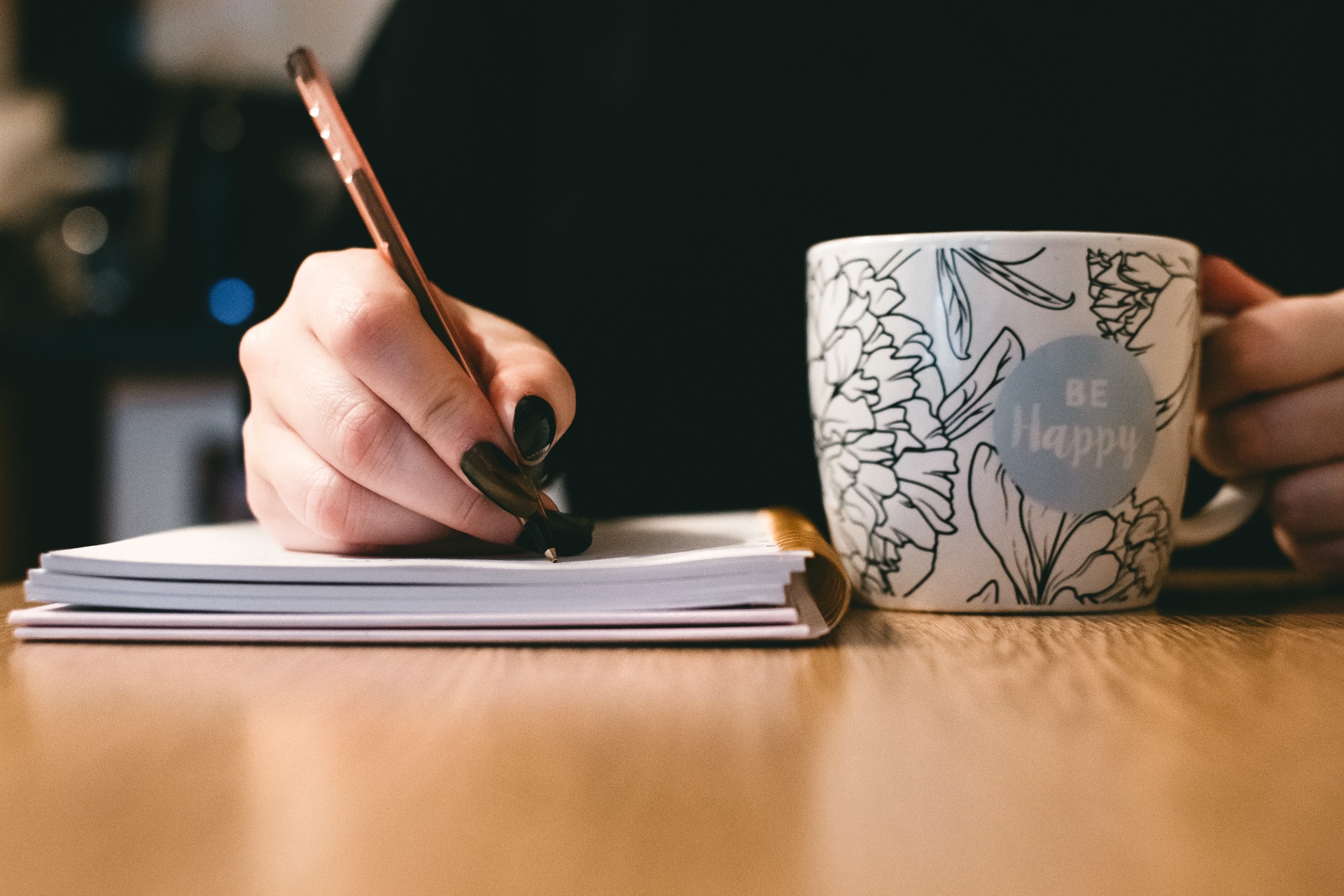
Set Yourself Up for Success and Joy Every Morning
Morning is the time to set your goals and boost your energy, motivation and mood for a joyful and successful day. Start the day in a good mood and with a positive attitude, clarity about what you want to achieve and focus on your priorities. Even if you wake up a bit tired or feeling low, you can consciously change this and programme yourself for a great day.
Start the day with some me-time first thing in the morning. There are several reasons for scheduling this routine just after you wake up:
- It is more likely that no one will disturb you at this early hour.
- Your brain waves are still close to alpha when you wake up, and this makes your brain easier to program.
- You will set the mood and the energy of your entire day before anyone or anything interferes with your energies.
- This energy boost and focus redirection will help you go through the day, even when you encounter difficulties and challenges.
There are many tools and techniques you could use in your morning routine. When deciding on the tools and techniques for your morning routine, take into account the time you can allocate to your morning routine, your preferences for certain tools and techniques, and the mental and energetic shifts you are working on, such as clearing limiting beliefs, changing your attitude, raising your energy level, and stopping procrastination to achieve your long-term goals. A few questions to help you decide on the content of your morning routine:
- Do you need to be more focused?
- Do you need support to implement and do everything you planned for the day?
- Would you like to have more energy during the day?
- Would more courage and a more positive attitude be welcome?
- Do you want to increase your self-confidence?
Design your morning routine to satisfy your needs and help you have a better, more productive, successful and joyful day.

When you start the morning routine, be realistic. Decide how much time you can dedicate to this without creating unnecessary stress in your life. If you have never had a morning routine before, start small, with only 10 minutes and one or two simple techniques. Set the alarm clock 10 minutes earlier than before to have time for your morning routine. Ten minutes isn't too big a sacrifice for a better and more productive day, is it?
Practice the chosen techniques for ten minutes every morning, until this small routine becomes a habit. Then you can increase the time and add a new technique. The time you invest in your morning routine will pay off handsomely after some time. You'll have more energy and motivation and be more centred, focused and productive. Just be patient. Give yourself time to get accustomed to your morning practice and the techniques to start creating positive results. Do not say after the first day that it didn't work and stop doing it. Visible and lasting changes need time to settle in.
There are many tools and techniques you could use in your morning routine. Here are nine easy-to-use techniques and tools you could use.
1. Meditation
Quiet your mind for a few minutes in the morning and focus on your breathing. If your mind goes wild and thoughts start nagging at you, do not beat yourself up. Just direct your attention back to your breathing.
You can also use a candle to focus your attention. Watch the flame of a tea light. When thoughts come forward on the screen of your mind, do not start building on them. Just observe them floating away like white clouds on a summer sky.
You can also choose a guided meditation if you are completely new to meditation or if you feel more comfortable with instructions.
Start with 3 minutes, then gradually increase the duration of your meditation. Studies show that meditating for 20 minutes in the morning has the maximum effect on productivity during the day.
2. Plan your day
Plan your activities for the day, the evening before, or in the morning. If you choose to use visualisation, plan your day before visualising so that you can visualise the successful completion of all the tasks from your to-do list.
Instead of a simple to-do list, set your priorities, estimate the time necessary to accomplish the most important tasks and schedule them. Leave a buffer zone for unexpected and urgent tasks or if a task requires more time than expected. If possible, schedule the most difficult or unpleasant task first.
If you schedule your tasks in the evening, recap them in the morning and make any necessary changes to your schedule.
Clarity on your tasks reduces stress and increases focus, creating the conditions to get into flow while working on important tasks and reach your daily targets, which will make you feel more satisfied.
3. Visualisation
Decide what you want to visualise. For example, you can start with a grounding visualisation, then see yourself accomplishing your most important goal you are working on and finally visualise your day. If this seems too much and you only have 10 minutes for your morning routine, you could visualise that you successfully accomplish an important task. If you have an important event that day, such as a job interview, an exam, or a negotiation, you can visualise that all goes well. Or you can opt for your medium-term priority goal. In this case, you do not visualise yourself taking action to achieve your goal, but the moment when you achieve it. As you become more experienced in visualisation, you'll be able to do the grounding and the visualisation of a daily task and a longer-term important goal in 5-6 minutes.
Do not forget to add positive feelings to your visualisation practice. Feel the joy, the relief, the excitement, motivation or whatever other positive feelings the visualised scene could induce.
4. Free writing
Free writing, or stream of consciousness writing, helps you clear your mind of nagging thoughts and get access to your subconscious mind. To benefit the most from free writing, do it after you wake up. It is better to use handwriting because the connection between the hand movement when you write and the brain is very different from the connection that is created when you type.
Write down everything that comes into your mind. This is not a literary contest or a book to be published, so don't worry if you only write down words, half-sentences or something that doesn't make much sense. Do not censor yourself. Do not re-read your writing or correct it. You can read it later, after one or two weeks and look for ideas, solutions, thought patterns, recurring elements that will help you to generate new ideas, find solutions or find out what you need to work on for personal development reasons or boost your creativity, clear writer's block or other inner blocks, etc.
The recommended length for the morning free writing (Julia Cameron calls it "morning pages" in her book "The Artist's Way) is 3 pages. That can take about 30 - 40 minutes. Of course, if you do not have enough time, you can decide to write one page each morning or just jot down a few thoughts lingering in your mind in 1-2 minutes. The aim is to clear your mind and put your thoughts on paper in the morning. As you practice and see the results of your free writing, you might decide to increase the time dedicated to it.
5. Gratitude
You can practice gratitude silently in your mind, orally, in writing or combining the three different methods.
In the morning, when you wake up, you can start your day by giving thanks for the good things in your life and the small things that ensure your daily comfort you usually take for granted. For example: you are alive, you have heating, you are healthy, you have food, etc.
You can use a gratitude journal to express your gratitude every evening for the good things that happened to you that day, but also for important achievements, learnings, relationships, etc. You can also use the gratitude journal in the morning to plan your day by saying thanks for the results of the day, as they have already happened. When you are grateful for each successfully accomplished task in advance, you reinforce in your mind what you need to do that day and programme yourself for success.
6. Affirmations
Affirmations are positive statements that reinforce a positive situation that you want to achieve.
You can reinforce your focus on your priorities and increase your self-confidence and belief in your abilities to achieve a goal. Write down at least 3 times your most important goal and be grateful as if you had already achieved it. Start with "I am happy and grateful that …". Put your goal in the present or past tense. Say it aloud at least 3 times. It is even better if you can do it in front of the mirror.
You can prepare a set of affirmations based on what you want to improve or reinforce, for example, abundance, success, self-confidence, health, new habits, or empowering new beliefs.
- I am a magnet for all the good that life has to offer. (Bob Doyle)
- My supply is endless, inexhaustible and immediate and comes to me under grace in perfect ways. (Florence Scovel Shinn)
- My prosperous thoughts create my prosperous world. (Louise Hay)
- I can feel my abundance growing daily. (Bob Doyle)
- Every day in every way, I feel better and better. (Émile Coué)
You can repeat these affirmations in the morning while preparing for work. For greater effect, you can repeat them in front of a mirror, looking into your eyes. You can write your favourite affirmations on cards and place them where you can see them first thing in the morning when you wake up, during your morning or evening activities, or the day (for example, on the mirror in the bathroom, on your desk, in your wallet). You can also turn them into screen savers on your computer, phone and tablet. Do not forget to add positive feelings to your affirmations.
7. Ho'oponopono
This is a Hawaiian forgiveness technique made known to the public by Dr. Joe Vitale, one of the speakers in the film "The Secret" and author of many personal books. It is based on the idea that everything we experience in our outside world is caused by our inner world. Therefore, if we experience something we do not like, we must clear its triggers in ourselves. The clearing consists of repeating 4 short sentences that mean we acknowledge our contribution, ask for forgiveness, and express our gratitude and love:
- I am sorry.
- Please forgive me.
- Thank you.
- I love you.
Some other techniques and tools you can build into your morning routine:
- Physical exercise
- Walking in nature
- Emotional Freedom Technique (Tapping)
- Chakra Clearing
- Grounding
- Pulling an oracle card and journaling on the message or the energy of the day
Be creative and find other ways to boost your energy and motivation and increase your good vibes.
Choose one or two techniques that feel comfortable and don't require too much time, and start your morning routine, even if it is only 5-10 minutes. Do not overwhelm yourself with it because you'll miss the point of the routine. Instead of energising and motivating you, you will start your day stressed and maybe even angry with yourself because you feel you wasted your precious time.
